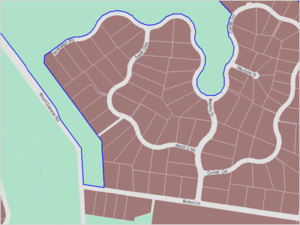
Guide to Zoning, Subdividing, Easements in QLD
Understanding the intricacies of property laws and regulations is essential for anyone involved in real estate transactions. In Queensland (QLD), navigating residential zoning, subdividing land, and understanding easements can be complex but crucial for successful property development and investment. Sunstate Conveyancing is here to guide you through these processes, ensuring you have the knowledge and support needed to make informed decisions.
Understanding Residential Zoning
What is Residential Zoning?
Residential zoning refers to the regulations and guidelines set by local councils that dictate how land within certain areas can be used and developed. These regulations are designed to ensure that land use is compatible with surrounding areas, providing a structured and harmonious community environment. Residential zoning categories can include single-family homes, multi-family homes, and mixed-use developments, each with specific restrictions and allowances.
Importance of Residential Zoning
Residential zoning is crucial for several reasons:
Community Planning: It helps in organizing the development of cities and towns, ensuring that residential areas are well-planned and sustainable.
Property Value: Zoning regulations can influence property values by maintaining the character and integrity of residential neighborhoods.
Legal Compliance: Adhering to zoning laws is essential to avoid legal issues and penalties when developing or modifying properties.
How to Subdivide Land in QLD
Subdividing land involves dividing a single parcel of land into two or more separate lots, each with its own title. This process can be beneficial for property developers, investors, or homeowners looking to maximize the value of their property.
Steps to Subdivide Land
Consult with Local Council: Before starting the subdivision process, consult with your local council to understand the specific zoning requirements, restrictions, and approval processes for your area.
Hire a Surveyor: Engage a licensed surveyor to prepare a detailed survey plan of the land, indicating the proposed boundaries for the new lots.
Lodge a Development Application (DA): Submit a development application to your local council, including the survey plan, relevant reports, and any required fees. The council will review the application and may request additional information or modifications.
Council Approval: If the application meets all requirements, the council will issue a development permit, allowing you to proceed with the subdivision.
Plan Sealing: Once the subdivision work is completed, the survey plan must be lodged with the council for sealing, confirming that the subdivision complies with all conditions of the development permit.
Registration: Finally, the sealed plan is submitted to the Titles Registry for registration. Upon registration, new titles for the subdivided lots are issued.
How Long Does It Take to Subdivide Land?
The timeframe for subdividing land in QLD can vary depending on several factors, including the complexity of the project, council processing times, and any required modifications. On average, the entire process can take anywhere from 6 to 18 months.
Understanding Easements
What is an Easement?
An easement is a legal right that allows one party to use a portion of another party’s land for a specific purpose. Common types of easements include rights of way for access, utility easements for power or water lines, and drainage easements. Easements are typically registered on the property title and can affect the use and value of the property.
Types of Easements
Right of Way: Allows access across a property for pedestrians, vehicles, or both.
Utility Easement: Permits the installation and maintenance of utility services such as water, electricity, and sewage.
Drainage Easement: Allows for the flow of stormwater or other drainage across the property.
FAQs About Residential Zoning, Subdividing Land, and Easements
What are the main types of residential zoning?
Residential zoning can include single-family homes, multi-family homes, and mixed-use developments, each with specific guidelines and restrictions.
Why is residential zoning important?
Residential zoning helps in community planning, maintaining property values, and ensuring legal compliance in property development.
What are the benefits of subdividing land?
Subdividing land can increase the property’s value, provide opportunities for development, and allow for the creation of additional lots for sale or use.
What is the first step in subdividing land in QLD?
The first step is to consult with your local council to understand zoning requirements and obtain guidance on the approval process.
How long does it typically take to get council approval for a subdivision?
Council approval for a subdivision can take several months, depending on the complexity of the project and the council’s workload.
Can I subdivide any type of land?
Not all land can be subdivided. The land must meet specific zoning and planning requirements set by the local council.
What is an easement and why might it be necessary?
An easement is a legal right to use another person’s land for a specific purpose, such as access or utility services, and is necessary to ensure essential services and access.
How can an easement affect my property?
An easement can limit the ways you can use your property and may impact its value, as it grants rights to another party over a portion of your land.
Do easements need to be registered?
Yes, easements are typically registered on the property title and become part of the legal record affecting the property.
Can I remove or modify an easement?
Modifying or removing an easement typically requires legal processes and agreement from all parties involved, including possibly the local council.
Understanding residential zoning, subdividing land, and easements is essential for anyone involved in property development or real estate transactions in QLD. Sunstate Conveyancing provides expert guidance and support throughout these processes, ensuring you navigate the complexities with confidence and compliance. Whether you’re looking to develop property, understand your zoning regulations, or deal with easements, our experienced team is here to assist you.
This is general advice only, for speific legal advice speak with your legal representative.


